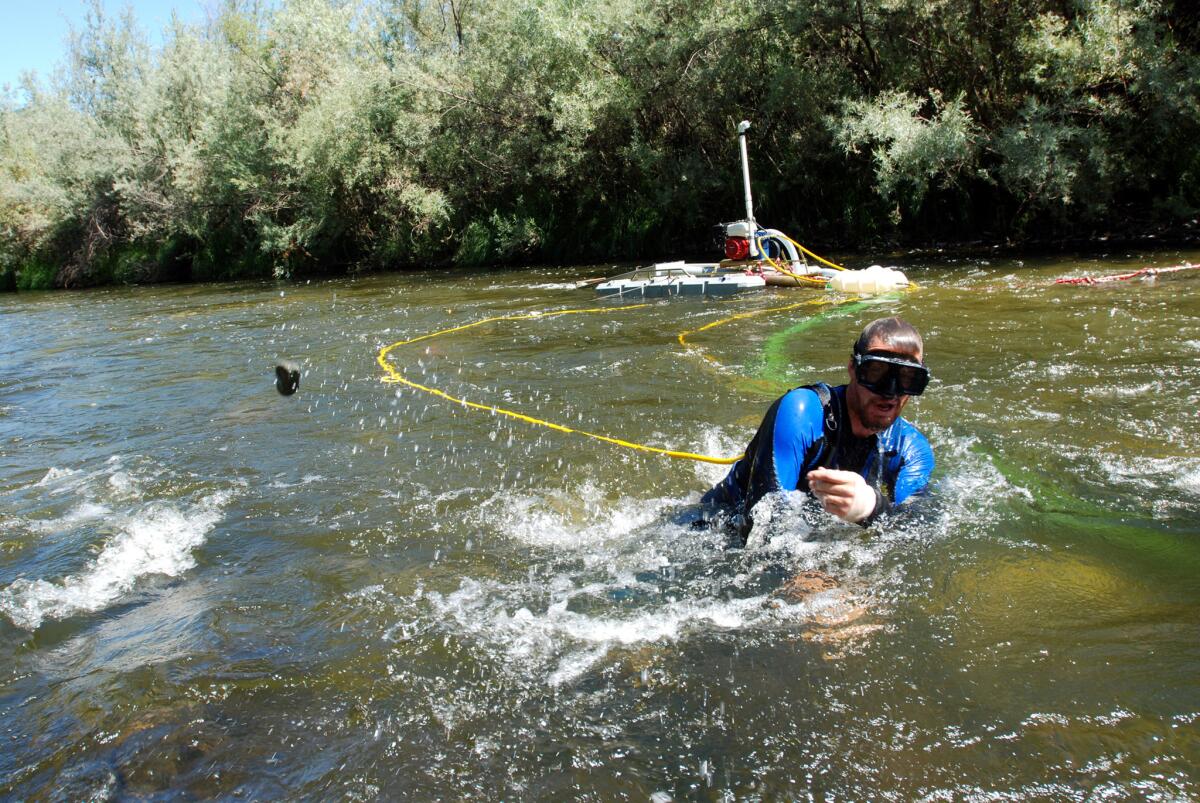California high court upholds ban on dredges to extract gold

- Share via
California’s ban on the use of suction dredges to extract gold from rivers is legal and not overridden by a 19th century federal law that allows mining on federal land, the California Supreme Court ruled Monday.
The court’s unanimous decision was a victory for environmentalists and a blow to miners, who argued that the ban essentially stopped gold mining because doing it by hand is labor-intensive and makes the enterprise unprofitable.
Environmentalists say suction dredge mining risks killing fish and stirring up toxic mercury.
The high court’s ruling came in an appeal of a criminal case in which miner Brandon Rinehart was convicted of a misdemeanor for suction dredge mining without a permit in 2012 and sentenced to three years’ probation.
Associate Justice Kathryn Werdegar, writing for the court, said the federal Mining Law of 1872 did not guarantee a right to mine free from regulation.
Instead, its goal was to protect miners’ property rights involving the federal land to which they laid claim, she said.
“The mining laws were neither a guarantee that mining would prove feasible nor a grant of immunity against local regulation, but simply an assurance that the ultimate original landowner, the United States, would not interfere by asserting its own property rights,” she wrote.
Rinehart’s attorney, James Buchal, said the high court showed a “casual disregard” for federal law.
He said Rinehart would probably ask the court to review its ruling or appeal to the U.S. Supreme Court.
Suction dredges are powerful underwater vacuums that suck up rocks, gravel and sand from riverbeds to filter out gold.
State officials argued their right to protect the environment was not preempted by federal mining law. Miners countered that the state failed to show suction dredge mining killed any fish.
The court’s ruling came more than a century after the famous California gold rush that brought tens of thousands of miners to the state from around the country.
California has experienced a mini-gold rush of sorts in recent years, as low water levels caused by the drought have lured amateur prospectors to riverbed spots that have been out of reach for decades.
There are more than 20,000 mining claims on federal lands in California. Suction dredge mining largely occurs in mountain regions.
California passed a law last year that allows state officials to resume granting permits for suction dredge mining under certain conditions that include making sure the practice does not have any significant effect on fish and wildlife. The conditions have not yet been met, so no permits have been granted.
UPDATES:
2:40 p.m.: This article has been updated throughout with the California Supreme Court’s ruling.
This article was originally published at 11:05 a.m.
More to Read
Sign up for Essential California
The most important California stories and recommendations in your inbox every morning.
You may occasionally receive promotional content from the Los Angeles Times.










